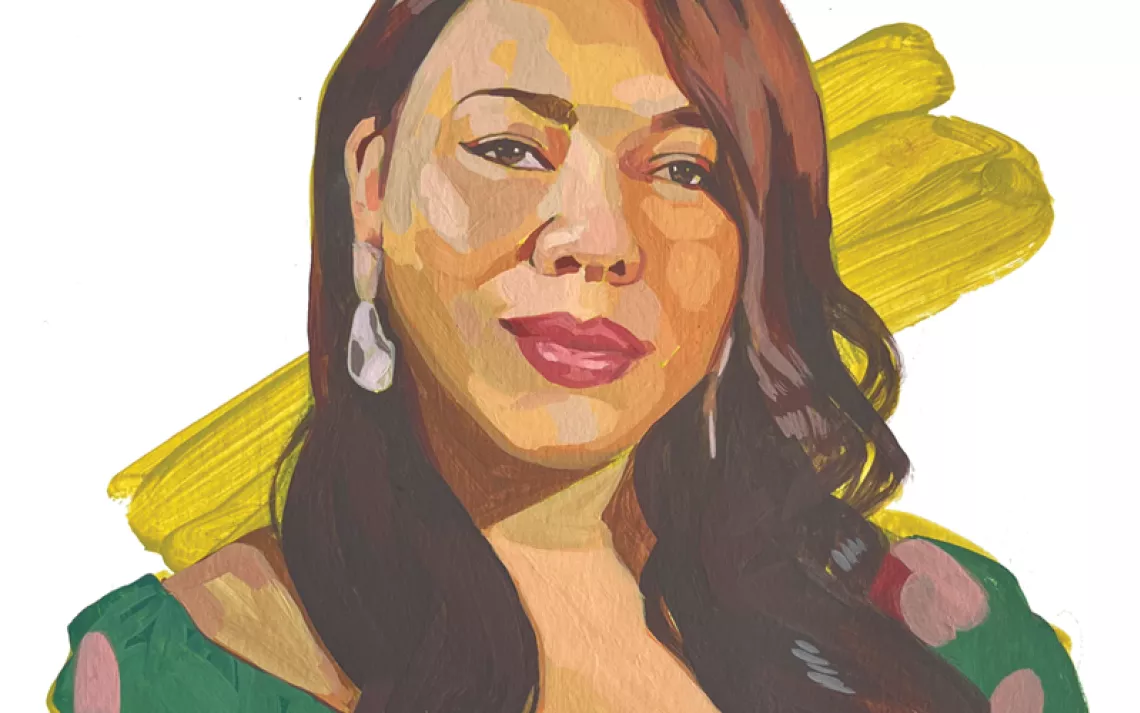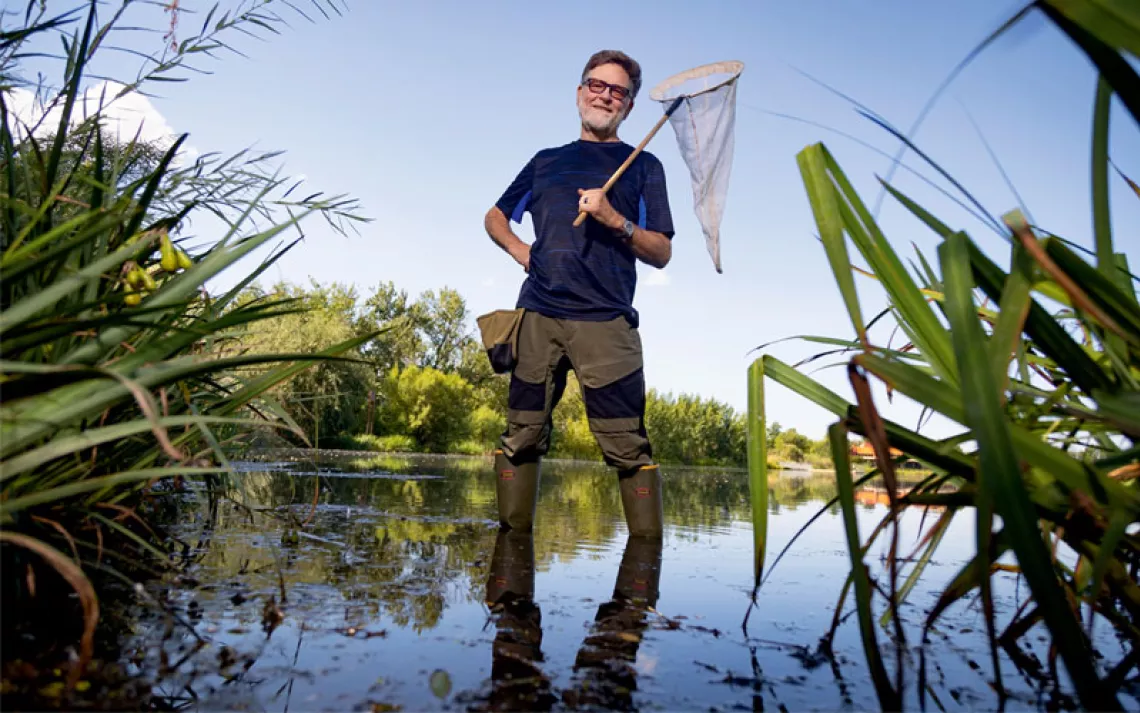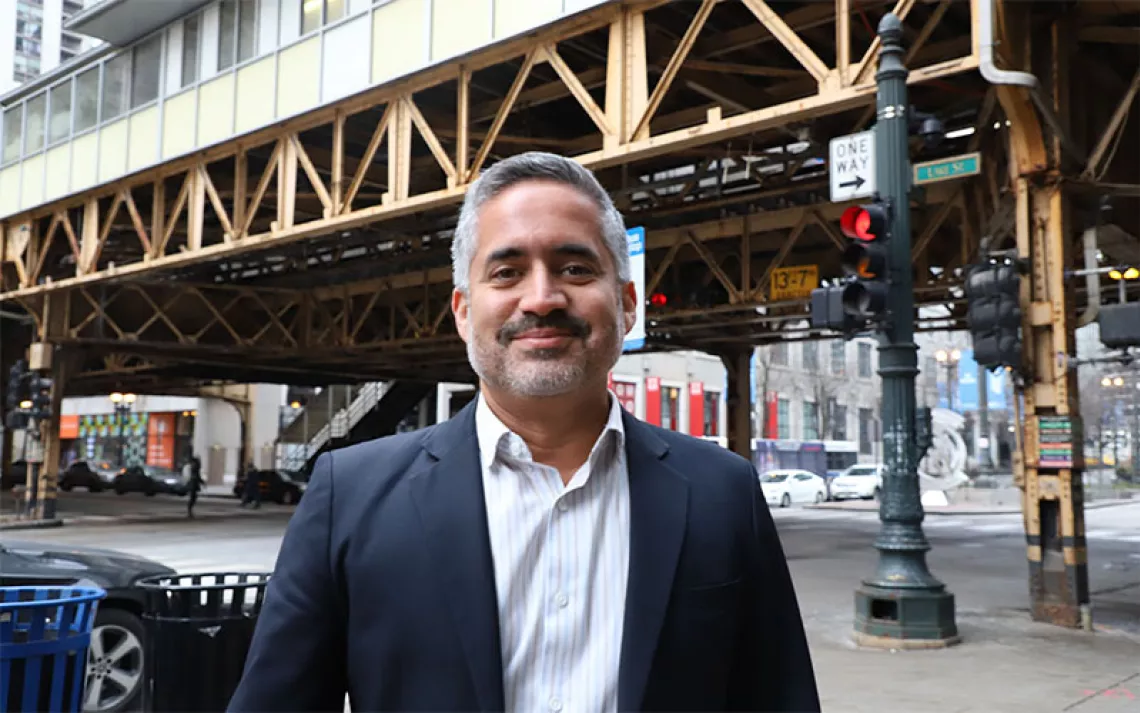Goldman Prize Winner Nalleli Cobo Sees Hope for the Future
The Los Angeles–based activist pressured a major corporation to end oil drilling—and she isn’t stopping there
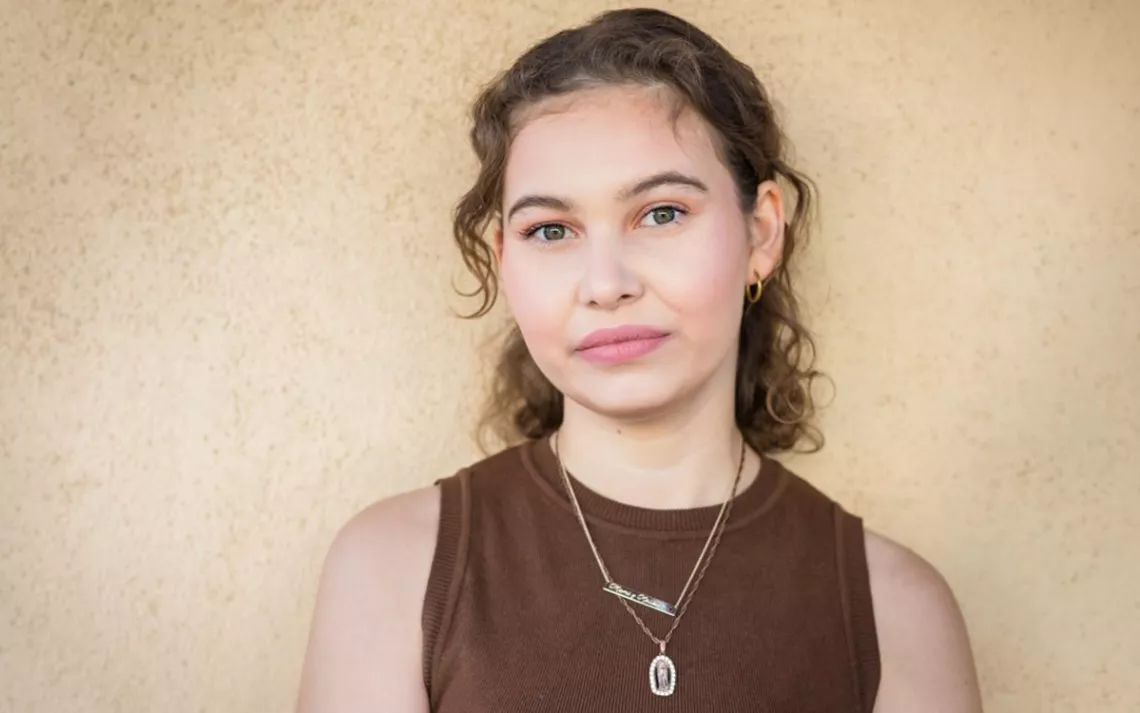
Photos courtesy of Tamara Leigh Photography
At nine years old, while still in elementary school, Nalleli Cobo would finish up a typical day in the classroom, and then do something very atypical for someone her age: Every night, she and her mother would canvass their neighborhood to rally neighbors to act. The young organizer and her mother wanted to spread the word about Allenco Energy in University Park, a low-income area in South Los Angeles. At times, they got up as early as 3:00 a.m. to take air samples when the smell of gas pervaded their home. Cobo experienced such severe nosebleeds that she had to sleep in a chair to keep from choking on her own blood. On a regular basis they also noticed the smell of fruit after Allenco’s efforts to mask the smell of gas.
In 2010, Cobo and her mother, Monic Uriarte, founded People Not Pozos (People Not Wells), a group that filed complaints with state regulators, told stories at town hall meetings, and testified at government hearings. In response to pressure from the community, the city of Los Angeles filed a civil enforcement action against Allenco in 2014. On March 5, 2020, the California oil and gas supervisor issued an order to Allenco Energy to permanently close its Saint James drill site in South Los Angeles. Cobo helped shut down a toxic oil drilling site in America’s largest urban oil field. She is one of the recipients of the 2022 Goldman Prize, the prestigious award given out annually to grassroots environmental activists from across the world.
“It was a no-brainer to stand up for my community,” Cobo, now 21 years old, told Sierra. When her mother immigrated to the United States from Mexico, she worried about finding the love and support that comes with having a community. “Our community had that. If my mom was making huevos for breakfast with homemade salsa and we were out of chiles, I would go upstairs and a neighbor would give her chiles and tomatoes. It made it easier to fight because you’re fighting for your family.”
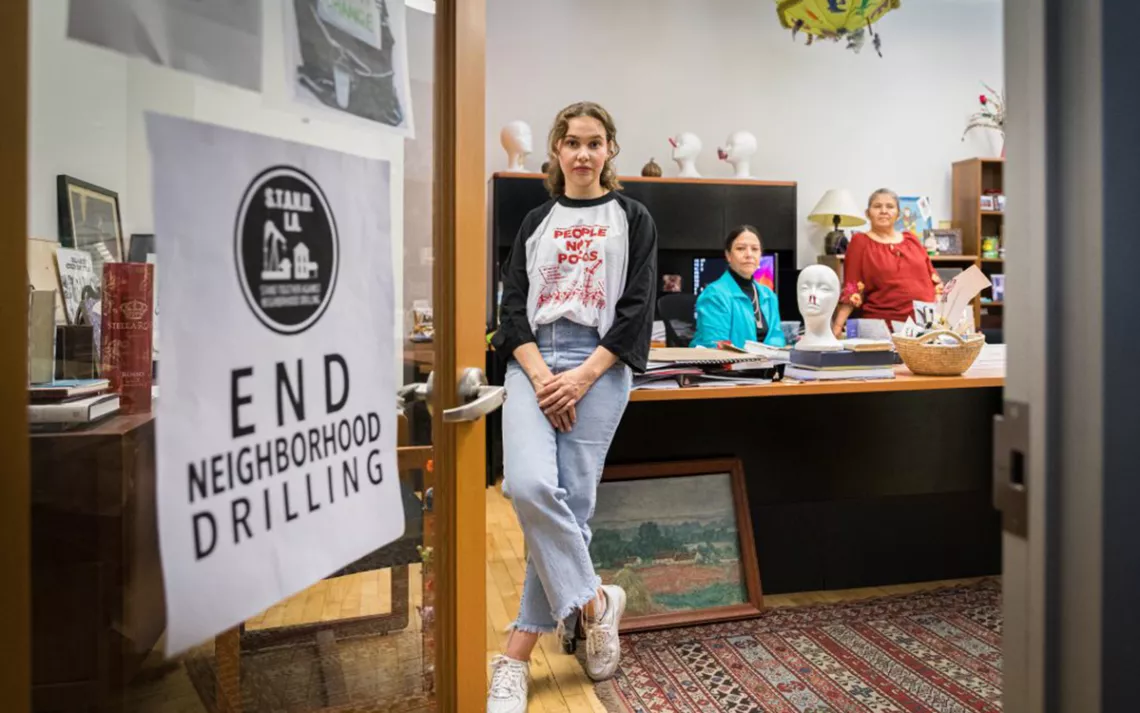
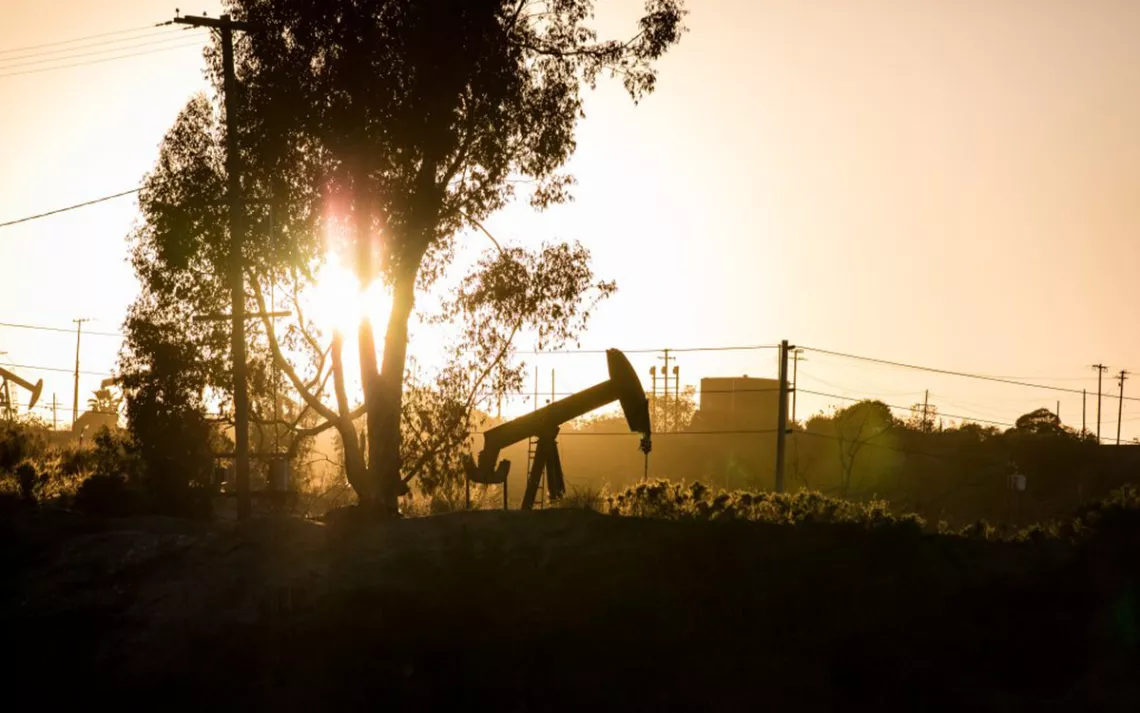
Cobo and her mother first visited Allenco’s headquarters when they came across the building’s front doors, which were wide open. “Without even talking to each other, we just looked at each other and ran inside.”
The pair got a tour of the entire facility, where there were 21 oil wells underground. They were told that every 15 minutes a worker had to open a valve to release pressure. The Allenco employee who gave them a tour offered Cobo oil as a souvenir to take to school for show-and-tell. Cobo says that he told her to “show her class Mother Nature’s gift to us.” Cobo noted that the man working at Allenco was in jeans and a T-shirt, and let her mom enter while she was wearing open-toed shoes. “They weren’t protecting their own workers,” Cobo said. Although Allenco has permanently closed, there are still 30,000 active oil wells in Los Angeles.
Today, Cobo is a member of Stand Together Against Neighborhood Drilling Los Angeles. “One of the biggest environmental issues is urban oil drilling. Los Angeles outputs one-quarter of the world’s oil. There are so many lives on the line,” Cobo said.
Cobo’s peers have spoken out about her dedication to environmental rights. The 2017 Goldman Prize winner mark! Lopez (“mark!” is how he spells his name) had only kind words to say about Cobo. “I admire Nalleli’s unflinching commitment to fighting for our communities,” he said. “Her leadership is beyond her years, a guiding light for youth everywhere who know there is no other option but to stand up for people and the planet.”
“The admiration that I have for my daughter for her commitment, vision, and perseverance makes me feel hopeful,” Uriarte told Sierra.
Here are the other winners of the 2022 Goldman Prize:
- Chima Williams, of Nigeria. Williams, an attorney, won a landmark case against Royal Dutch Shell’s Nigerian operations that forced the petroleum giant to be held accountable for oil spills there.
- Niwat Roykaew, from Thailand. Rovkaew’s advocacy helped stopped a plan to deepen 248 miles of the Upper Mekong River—a development scheme aimed at facilitating commercial river cargo. The project would have harmed the upper reaches of the river, which some 65 million people depend on for their livelihoods.
- Marjan Minnesma, from the Netherlands. In 2019, the Dutch Supreme Court ordered the country’s government to slash greenhouse gas pollution by 25 percent below 1990 levels. The case, which was argued by Minnesma, marked the first time that citizens have succeeded in holding a government accountable for its failure to address the climate crisis.
- Julien Vincent, from Australia. Vincent’s activism led four of the country’s largest banks to end funding for all coal projects there by 2030. As a result of his advocacy, Australia’s major insurance companies have also committed to stop underwriting new coal projects.
- Alex Lucitante and Alexandra Narvaez, of Ecuador. Lucitante and Narvaez led an Indigenous movement to protect their people’s lands from gold mining. In 2018, Ecuadorian courts canceled 52 illegal gold mining concessions that had been granted without the consent of the Cofán community, and in the process protected 79,000 acres of rainforest.
 The Magazine of The Sierra Club
The Magazine of The Sierra Club
